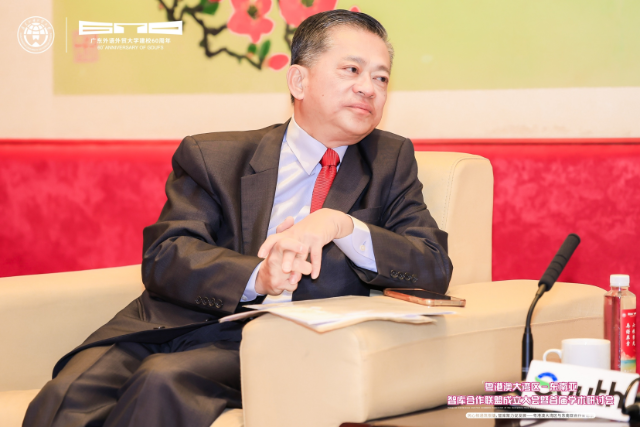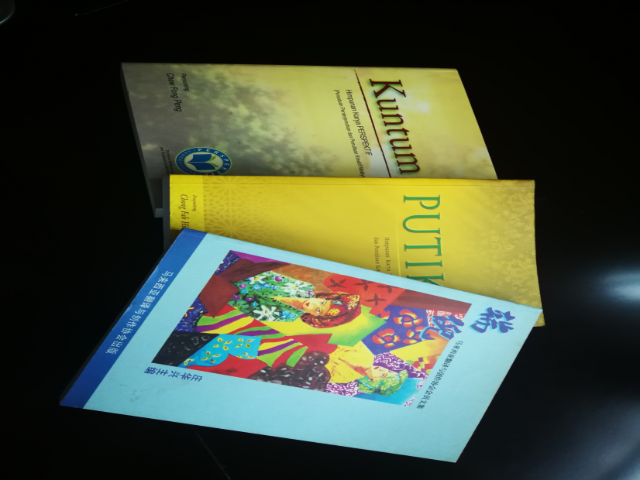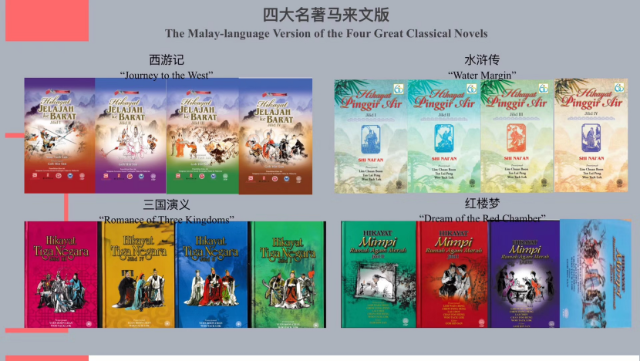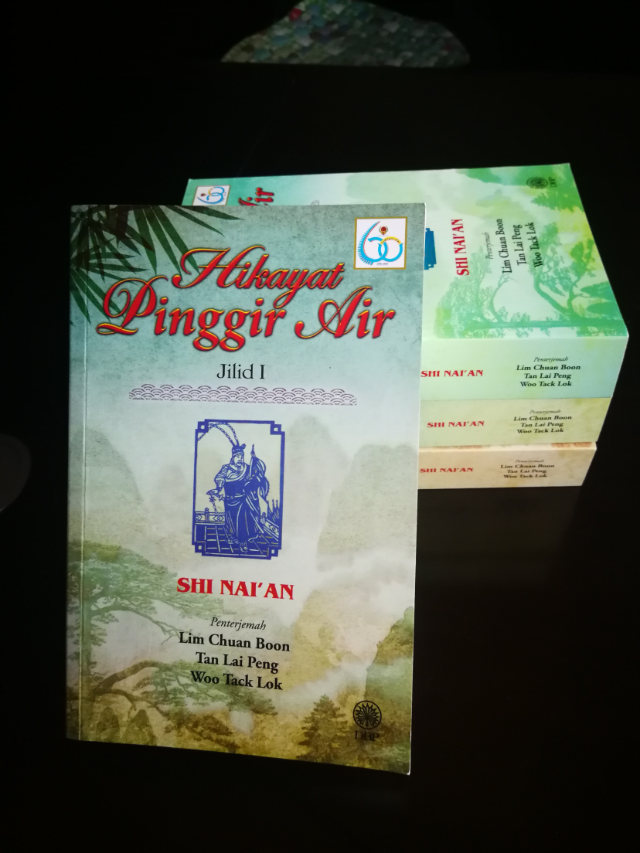
Lim Chuan Boon receives the exclusive interview with South in Guangzhou on Nov. 21, 2025. (Photo: Guangdong University of Foreign Studies)
The Guangdong-Hong Kong-Macao Greater Bay Area (GBA) - Southeast Asia Think Tank Cooperation Alliance was launched in Guangzhou last week to boost mutual exchanges.
As the representative of the Translation and Creative Writing Association of Malaysia (PERSPEKTIF), Lim Chuan Boon, President of PERSPEKTIF, detailed to a South reporter in an exclusive interview the mission of his institution, with translation serving as a bridge and the essence of Malaysian Chinese literature.

Published works of the Translation and Creative Writing Association of Malaysia
The mission of PERSPEKTIF
The association is set to celebrate its 40th anniversary in January next year. Lim underscored that one of PERSPEKTIF's aims is to enhance understanding and exchanges between the Malaysian Chinese and local Malay communities.
The national language of Malaysia is Malay, while the Malaysian Chinese community still retains Chinese education. Achieving better communication between these two communities has become a crucial tenet of the association.
Since its launch in 1986, PERSPEKTIF has published nearly 60 books, including translations of local Malaysian Chinese literature into Malay, allowing Malays to read about the situation of the Chinese community in Malaysia.
Literature reflects the conditions of local society, as Lim observes. Malaysian Chinese living in Malaysia are similar to local Malaysians, facing the same hardships. "We live under the same sky despite our different languages. We face the same status quo, and this helps them understand us," he added.
Lim believes that the association has achieved its goals. For example, there used to be some resistance in the Malay community to lion and dragon dances. Through the efforts of the association and many local Malaysian communities, Malaysians have come to accept the celebration. Some are even learning martial arts. "This cultural communication is strengthened through exchanges," he added.
As a non-governmental organization, PERSPEKTIF does not have many financial resources. During his four years as president, he has focused on collaborations with universities, which helps alleviate the financial burden of the association.
Lim noted that around 17 universities in China currently offer Malay language programs, with approximately 500 students enrolled. "I've visited five of them last year. My goal is to visit all of them this year," he claimed.
Regarding PERSPEKTIF's exchange programs, Lim revealed that about 50 Malay language students from China visit Malaysia each year. The association holds a reception for them to communicate and exchange ideas.

Malay-language Version of the Four Great Classical Novels
Translation as the bridge between Malaysians and Chinese
As an institution for translation and creative writing, PERSPEKTIF undoubtedly acts as a bridge between Chinese and Malaysians.
Since the 1990s, the association has translated the Four Great Classical Novels from Chinese into Malay, shedding light on traditional Chinese culture for Malaysian readers.
Lim began translating Water Margin (Hikayat Pinggir Air in Malay) around 1991 with two other members of PERSPEKTIF.
The project was largely completed by mid-1996. However, as the 1997 Asian financial crisis hit national budgets, it was put on hold. It wasn't until 2001 that the 2,500-page work was finally published, compiled into four volumes.
"My initial motivation for translating Hikayat Pinggir Air was that literature itself has a long-lasting impact on readers. We had to translate one of China's most quintessential classics for Malaysians," Lim recalled.
"Thanks to the translation of Hikayat Pinggir Air, I can confidently say that the other three were translated over a decade later," he added. In 2017, all Four Great Classical Novels were translated into Malay and published.

The four-volume Hikayat Pinggir Air was translated from Chinese.
The association also translated other Chinese classics, such as The Butterfly Lovers and The Legend of the White Snake, as well as modern Chinese literature, including Ba Jin's Family.
In turn, Malay literature has been translated into Chinese and published in China, enhancing its popularity.
Lim told the South reporter that prior to China's access to the International Publishers Association, someone translated the novel Salina by Malaysian writer A. Samad Said into Chinese. The Chinese version sold 200,000 copies in China, while the original only sold around 2,000-3,000 copies domestically.

Lim Chuan Boon (R) talks to Malaysian writer Anwar Ridhwan (L).
Malaysian Chinese literature lies in its unique literariness
From Li Zishu's Land of Mundanity and Chang Kuei-hsing's Wild Boar Crossing the River to Xu Youbin's children's literature and Woon Swee Oan's wuxia novels, a number of Malaysian Chinese authors and their works have risen to fame in China.
Lim attributed this reading craze mainly to social realities that Chinese readers cannot see. "They can only learn about situations different from contemporary Chinese society through the works of Malaysian Chinese writers," he added.
Based on Lim's observation, these writers all possess Chinese backgrounds and integrate Chinese and Malaysian creative techniques, thus creating works that resonate with the general public.
This is the essence of Malaysian Chinese literature—its unique literariness, as he stated.
A writer's background determines their writing style. These Malaysian Chinese writers were born, raised, and educated in Malaysia, and later perhaps studied elsewhere. Their childhood or youthful experiences shaped their unique writing styles, forming their distinctive character.
"I hope that more Malaysian Chinese writers will create works in this way, allowing these works to flow back from China and revitalize local literature. This is likely an inevitable path for the future," Lim expressed.
Reporter: Zhang Ruijun
Photo provided by Lim Chuan Boon
Editor: Yuan Zixiang, James Campion, Shen He
















